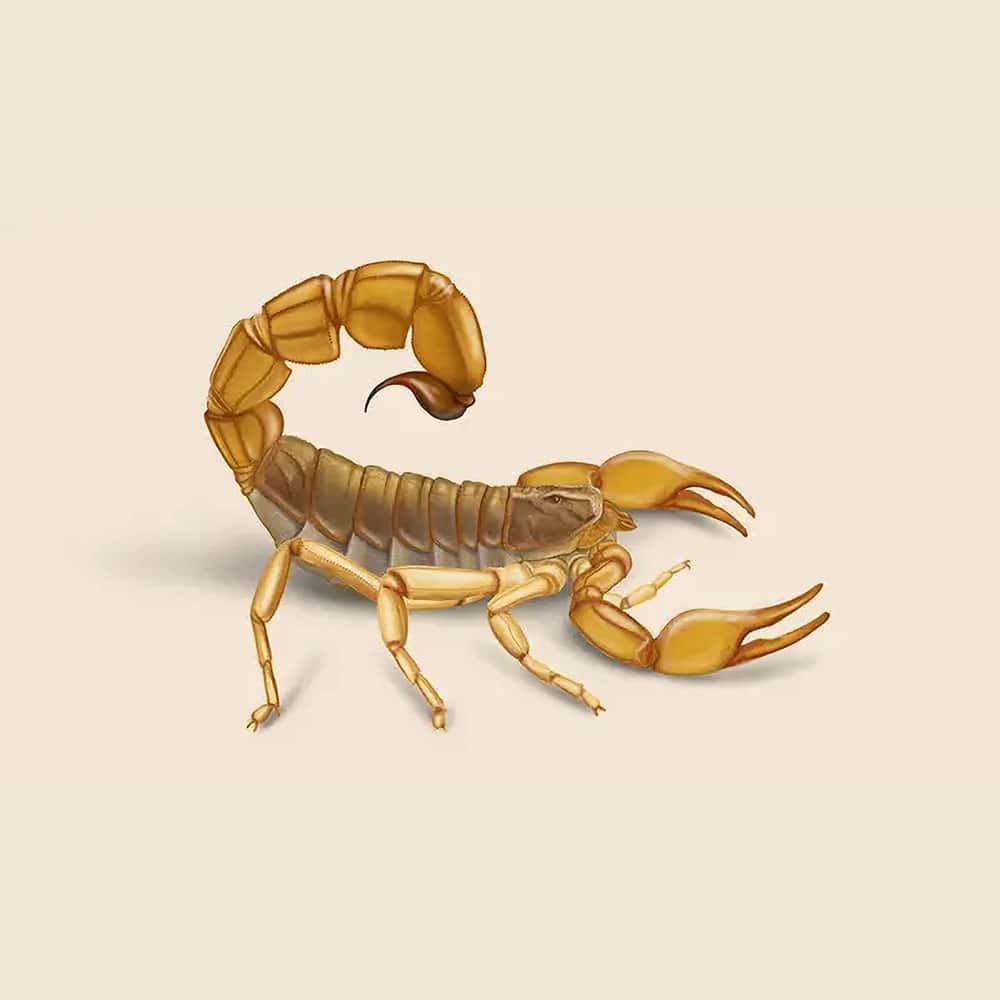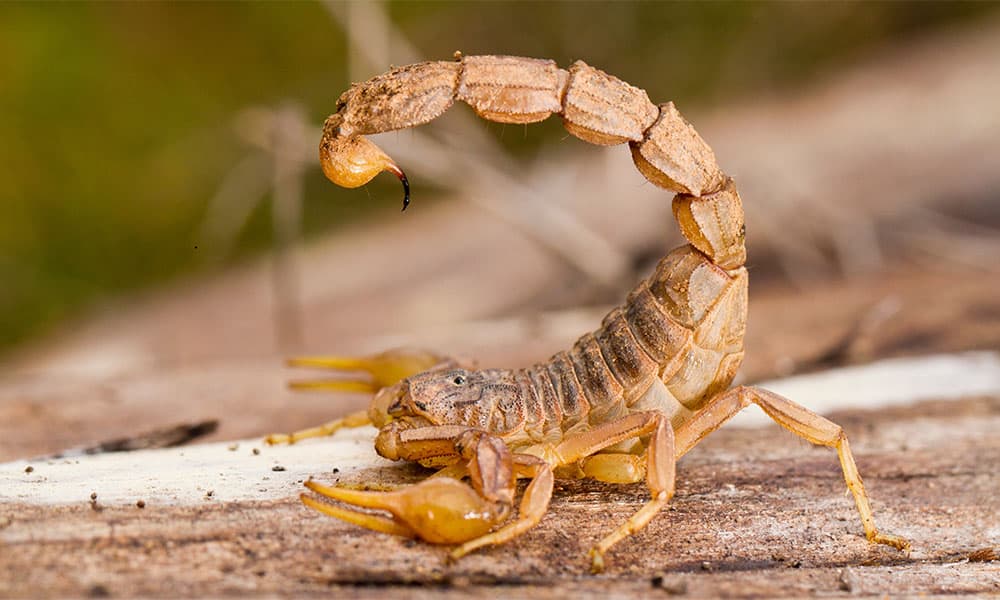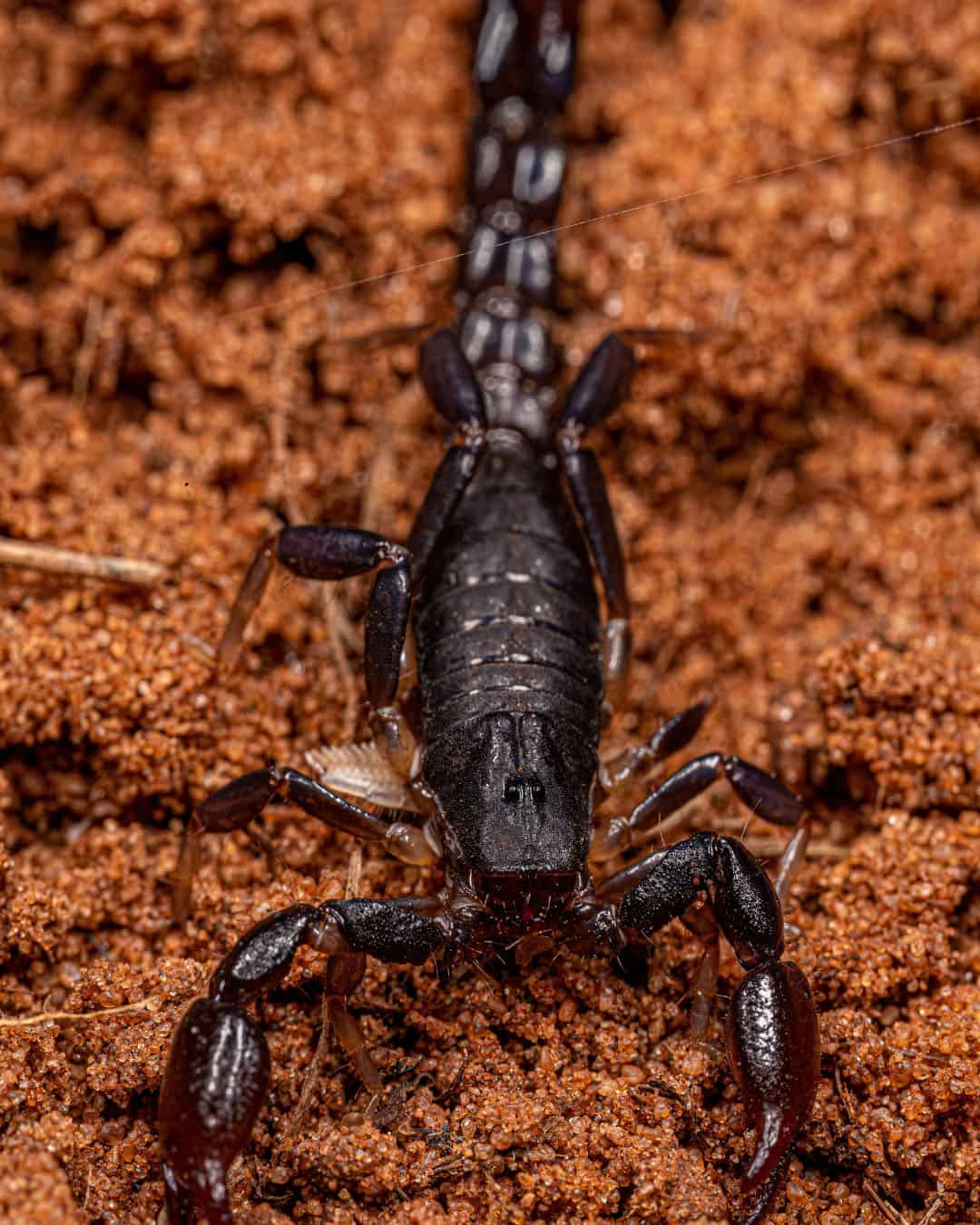Scorpion Facts & Information
Scorpions, known for their venomous sting, can pose a significant health risk and become a nuisance when they invade homes and properties. These nocturnal predators are adept at hiding and can be difficult to control without professional intervention.

Order Scorpiones
What You Need To Know About Scorpions
What do scorpions look like?
Scorpions have elongated bodies with segmented tails that curve over their back, ending in a venomous stinger. They have two large pincers (pedipalps) and are typically tan, brown, or black in color, ranging from 2 to 8 inches in length, depending on the species.
What do scorpions eat?
Scorpions are carnivorous and primarily feed on insects, spiders, and other small arthropods. Larger species can also prey on small vertebrates like lizards and mice. They use their pincers to capture prey and their stinger to inject venom.
What sort of habitat do scorpions live in?
Scorpions prefer dry, arid environments but can be found in a variety of habitats, including deserts, grasslands, forests, and urban areas. They seek out cool, dark hiding spots such as under rocks, logs, wood piles, and inside homes or buildings.
How do scorpions commonly behave?
Scorpions are nocturnal hunters, emerging at night to search for food. They are generally solitary creatures and hide during the day to avoid predators and the heat. They are known for their ability to survive in harsh conditions and can go months without food.
Did you know this about scorpions?
Scorpions have the unique ability to glow under ultraviolet light due to substances in their exoskeleton, making them easier to spot with a UV flashlight. Remarkably, scorpions can survive without food for extended periods, relying on their slow metabolism. Some species can even slow their metabolism further, allowing them to live on as little as one insect per year.
Understanding Scorpion Infestations
Understanding scorpion infestations is crucial for effective management. Scorpions prefer warm, dry climates and are often found in dark, secluded areas such as under rocks, in woodpiles, and inside homes. They can enter buildings through small cracks and openings, seeking shelter and food. While most scorpion stings are not life-threatening, they can cause significant pain and allergic reactions in some individuals.

How Hearts Handles Scorpion Treatment
Hearts Pest Management employs an integrated pest management approach to handle scorpion infestations. Our process begins with a thorough inspection to identify entry points, nesting sites, and areas of activity. We then develop a customized treatment plan that may include exclusion techniques, habitat modification, and targeted insecticide applications, ensuring the safety and comfort of your home.
Scorpion Inspection
Scorpion Treatment
Scorpion Prevention
Educational Resources

Think You Might Have a Scorpion Infestation?
At Hearts Pest Control, we understand the challenges associated with Scorpion infestations and are here to provide professional solutions tailored to your needs. Flourishing in warm and humid climates, they are prevalent in many regions, including San Diego County, Orange County, and Los Angeles County.